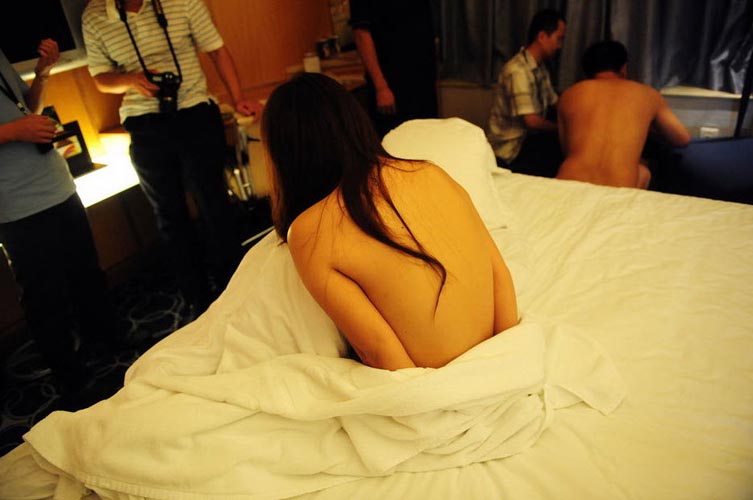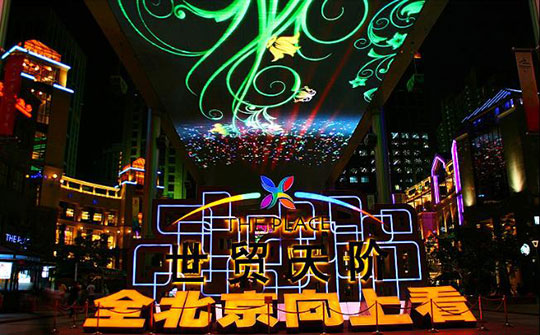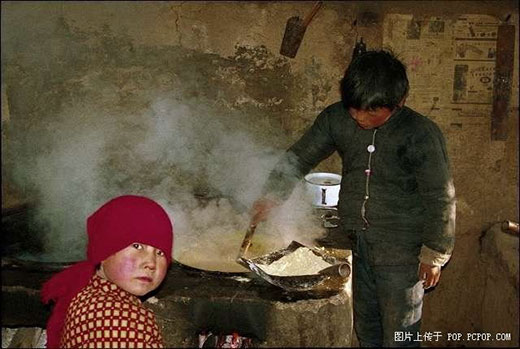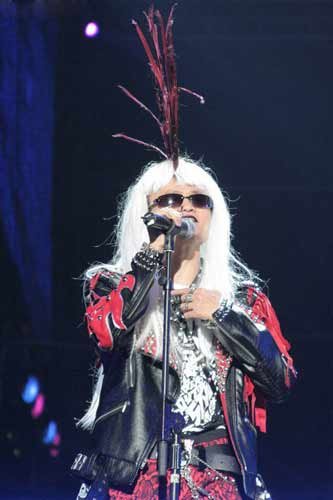Society
- Details
- By David Cao
- Hits: 899

First, Here have to make clear that this is not a series of snapshots from from blue movie. Those photos were taken during a recent police action against the old profession - Prostitution.
This old profession started from the beginning of human society, and now it's still illegal in many countries. Now people around the world are talking about the legalization of Sex Workers, even some of the Chinese officials support this proposal, in order to increase the government tax like Holland and Thailand.
Read more: Shenzhen Police Marsh up Prostitution Overnight (gallery)
- Details
- By David Cao
- Hits: 838

For many foreingers, Beijing means Great Wall, Forbidden City, Summer Palace.
But there is another place for you to go, if you have spare time in the evening - "The Place".
Beijing’s funkiest new mall is easy to spot thanks to the digital canopy that sweeps over its central outdoor plaza - the biggest LED screen in Asia would you believe. However if you find the butterflies and seascapes that flash up on it all a bit too much, head straight indoors to the tri-level mall which houses Spanish fashion chain Zara and Canadian shoe retailer Aldo’s flagship store. Other outlets include Potato and Co., Folli Follie, French Connection, i.t, Miss Sixty, Adidas, MAC cosmetics, Promod, Patricia, Puma, Rolex, the English-language Chaterhouse bookshop.
Read more: Galley: The Place in Beijing, A must visit place in evening
- Details
- By David Cao
- Hits: 1073
Update:Gallery: Chinese national day military show 2009, Beijing
This gallery is about Armed Vehicles or Armors will debuts on Chinese national day parade 2009, I took these photos during the last rehearsal under rain.

News on this event in Beijing:
The last round of rehearsal for the massive National Day celebrations in Tian'anmen Square concluded early Saturday morning, about ten days ahead of the 60th anniversary of the founding of the People's Republic of China, which falls on Oct. 1.
Read more: Chinese Armor ready for 2009 Chinese national day parade(gallery)
- Details
- By David Cao
- Hits: 1221

Rich China, Poor Peasants, written by Willy Lam, shows the data of the other side of China. Maybe it's not impressive and send the image of how terrible of it.
Now I will show you the photos took in the poor side of China.
By looking at this gallery, you will know that China just have no power to bring the world out of current crisis.
- Details
- By David Cao
- Hits: 995

Jack Ma stepped on stage and sang 2 songs for the 10th avanniversary of Alibaba Group in Huanglong stadium on the 10th Sep. 2009.
Jack Ma is the lead founder of Alibaba Group and has been the chairman and chief executive officer of Alibaba Group since its inception in 1999. Jack is responsible for the overall strategy and focus of Alibaba Group.
Jack is a pioneer in the Chinese Internet industry and in 1995 founded China Pages, widely believed to be China's first Internet-based company. From 1998 to 1999, Jack headed an information technology company established by the China International Electronic Commerce Center (CIECC), a department of the Ministry of Foreign Trade and Economic Cooperation (MOFTEC).
More Articles …
Page 208 of 255